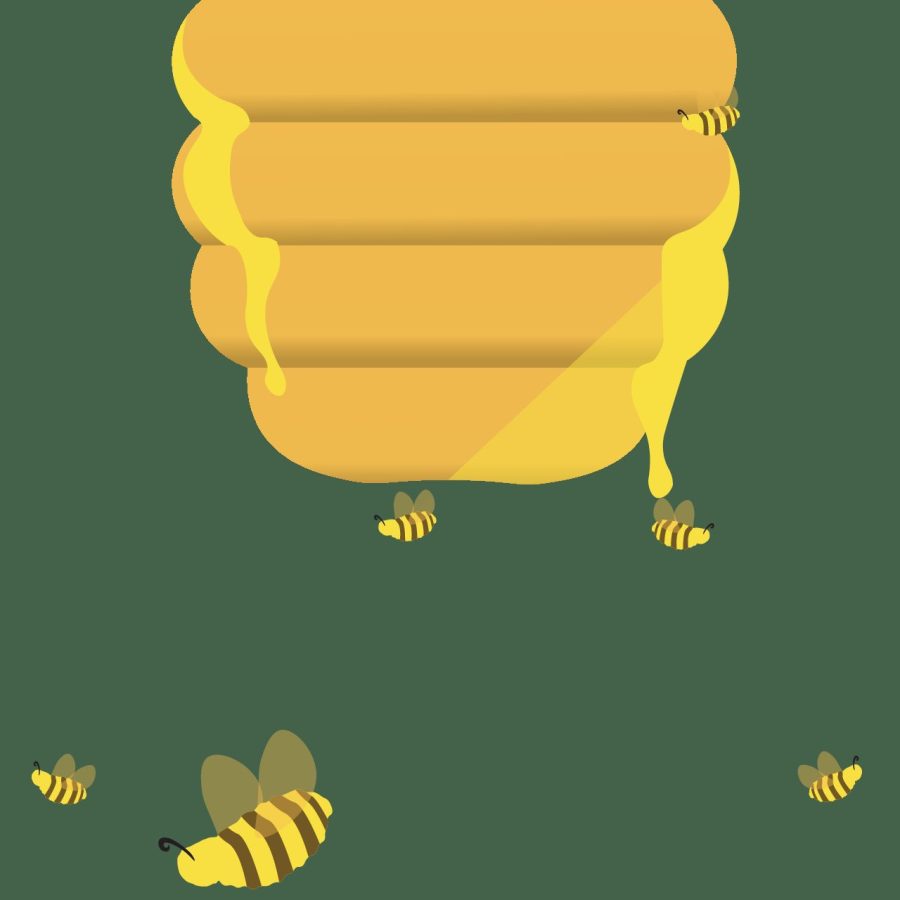Northern is BEEcoming more sustainable
February 17, 2022
Northern Michigan University prides itself on supporting the environment and sustainability, offering programs that include elements of environmental education in its core curriculums of biology, Native American studies and outdoor recreation.
The STARS report — a nationwide system that tracks and assesses the sustainability of colleges and universities — gives Northern an admirable silver rating with the exception of biodiversity for which it has earned zero points.
That may change in the future if two students have their way.
Cece Hogan, sophomore environmental studies major and Hayden Croff, senior environmental studies major, recently started an apiculture or beekeeping, club on campus. Their goal is to bring apiary education to the curriculum and get a beehive project underway.
NMU has multiple agriculture programs including indoor agriculture and agriculture career and technical education that could benefit from apiary classes and beehives on campus.
“Pollinators are an incredibly important part of sustainable efforts, especially going forward right now,” Croff said. “Their role in the food system is incredible.”
Honey bees are the most common pollinator species in the U.S., pollinating the majority of crops as well as wild and native plants. They are a vital part of ecosystems. However, honey bee numbers have been rapidly declining due to factors such as the use of pesticides and monocropping.
Croff said that sustainable efforts regarding pollinators are falling short because there are few practices in place generally to support them and to inform people of their importance. The biggest impact bees have is on agriculture, which was a selling point Croff and Hogan used to propose the idea to Northern.
The idea behind the club started as a project in economic geography class. Professor Ryan Stock, who is also the faculty advisor for the club, gave them the assignment to submit a proposal to NMU’s Green Fund, so Hogan and Croff created a proposal structured around the hands-on work of beekeeping.
This project was made easier for Hogan after gaining some background in beekeeping from his family.
“My dad is a beekeeper. He hasn’t been doing it very long but I’ve been doing it with him and it’s just so intriguing,” Hogan said. “They’re such a fascinating species, like how complicated their hives are.”
Hogan and Croff submitted their proposal to EcoReps, who is in charge of the Green Fund, last semester. Their apiary project was approved in January by the Sustainability Advisory Council and they are now waiting to take the next steps towards beehives on campus.
In the meantime, the apiculture club focuses on pollinator education through events and meetings until students can get involved with physical beekeeping, perhaps in the coming school year.
The apiculture club’s presence is limited to The Hub right now. They have not had any formal club meetings yet, but Hogan and Croff created a survey to gauge students’ level of interest and get a better idea of potential membership. They have been working on connecting with local beekeeping programs and hope to attend a beekeeping class as a club in the near future.
“Right now we’re just trying to make those connections to promote education,” Croff said. “I don’t want people to assume that next year we’re going to have beehives on campus.”
Hogan said the main focus of their apiculture project is longevity. They have received a lot of enthusiasm from people on campus and in the community.
“It’s definitely a marathon, not a sprint,” Hogan said.
Croff encourages anyone with beekeeping knowledge or interest to join the club and help all of the pieces come together until there are actual beehives on campus and apiary education in the curriculum.


























